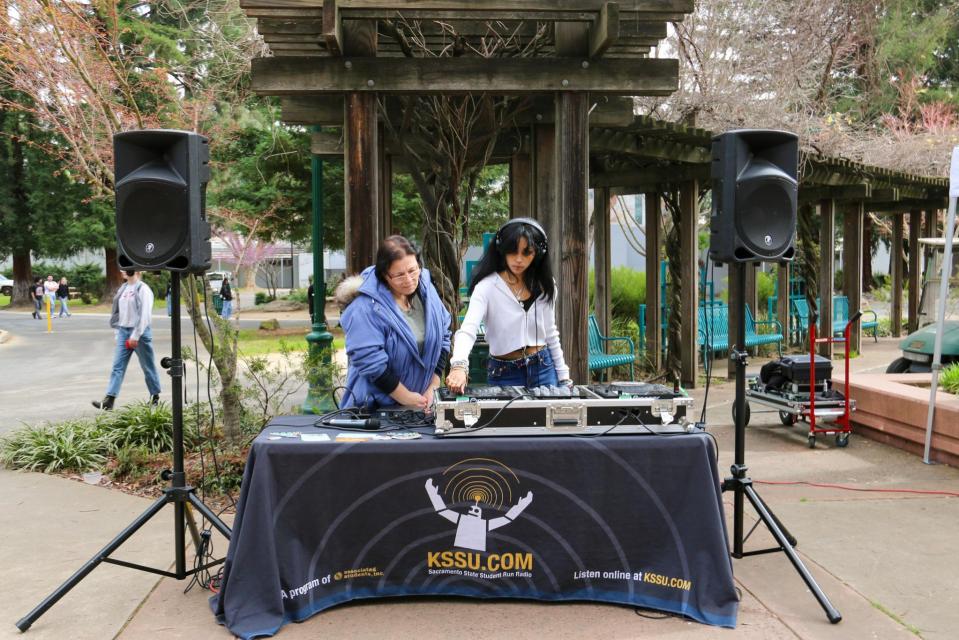The Enduring Relevance of #GamerGate
Warning: This content discusses issues that might be sensitive to some readers.
I was in high school when #GamerGate began. I distinctly remember a night when I was on my phone instead of sleeping, scrolling on Tumblr (I know) and seeing screenshots of Tweets made about Tropes vs. Women in Video Games, a 2012 YouTube series created by feminist critic Anita Sarkeesian. These tweets decried feminist criticism of video games, proclaimed wokeness as destroying the gaming as we know it, and they specifically hated Sarkeesian, the whiny feminist who dared to say anything in the first place. At 14-years-old, I was a budding whiny feminist critic myself, but did not know enough to recognize a misogynistic smear campaign when I saw it. So, out of curiosity, I watched Sarkeesian’s video in the dark of my room, the volume completely off and the captions on in case anyone saw or heard me.
What I saw changed the way I saw games forever. I saw the sexism that permeated every video game I liked, and noticed tropes that women were forced into in games. I was shocked at the reaction of primarily men online, who I learned very quickly hated women like me who played games. To them, video games was a (cishetero) Boy’s Club. Women, queer people, people of color, fat people, and disabled people were not allowed in the definition of “Gamer” and were not allowed to even exist in video games. If they did, it had to be for the consumption of able-bodied cishetero men. The main thing #GamerGate was successful in was pushing women and queer people to the margins of gaming. We created our own groups and refused to engage with the people who wanted us dead and invisible.
Why is this important? #GamerGate continues to impact culture beyond gaming a decade later. This harassment campaign spurred on the contemporary alt-right movement and may have influenced Donald Trump’s electoral victory in 2016. Video games continue to be a hotspot for culture wars; I have heard endlessly about the hatred for women in games such as Abby from The Last of Us Part II (2020) and Aloy from Horizon Forbidden West (2022).
#GamerGate in 2024 has a slightly different angle than it did in 2014, with a much larger emphasis on queer identities. Abby and Aloy both came under fire for having body hair, having a larger body type, and showing any traits that do not fit into the image of a cis white woman. This coincides with backlash and horrific policy enacted against transgender people throughout the United States. Most criticism I have seen for video games today is how “Woke” they are, which has become code for anything regarding queerness and queer identities. When Baldur’s Gate III was released in 2023, people immediately went online to complain about how male characters like Astarion and Gale would automatically flirt with the protagonist regardless of what gender they were. I have seen people complain about the ability to change their pronouns and gender identity in Baldur’s Gate III or Dragon Age: Veilguard (2024).
Gender and sexuality are the main focus of #GamerGate today. Just look at the “Woke Games List”, an online database based on the “Woke Content Detector” Steam group. Most games labelled as “Woke” are considered so because of their queer or feminist themes. Their defense is that the website/list was made “as a joke,” and yet the existence of the list itself perpetuates conversations and behaviors that directly put queer people and women in danger. I cannot engage with the mainstream “gamer” community today because the second my identity as a queer woman is revealed, I am harassed, stalked, called slurs, and barred from gaming online in a public way. There is no doubt in my mind that modern iterations of #GamerGate have played an influential role in the alt-right radicalization of young men, who have contributed to Trump’s re-election in 2024. I also believe that the anti-LGBT sentiment in #GamerGate has influenced hostility and dismissal towards transgender people from conservative and liberal people alike.
Despite this, there is still hope. #GamerGate is a reactionary “movement” that only exists because there are real strides for women and queer people in gaming. Women and queer characters are becoming more common, and the number of women and queer people working in the gaming industry is increasing as well. I can have conversations about games with men and not be as fearful about how they will treat me. That being said, we still have a long way to go when it comes to representations of queer people and women in video games. It is my hope that, despite public animosity, women and queer people can continue to carve a place for themselves in an industry that has been historically hostile towards us.

